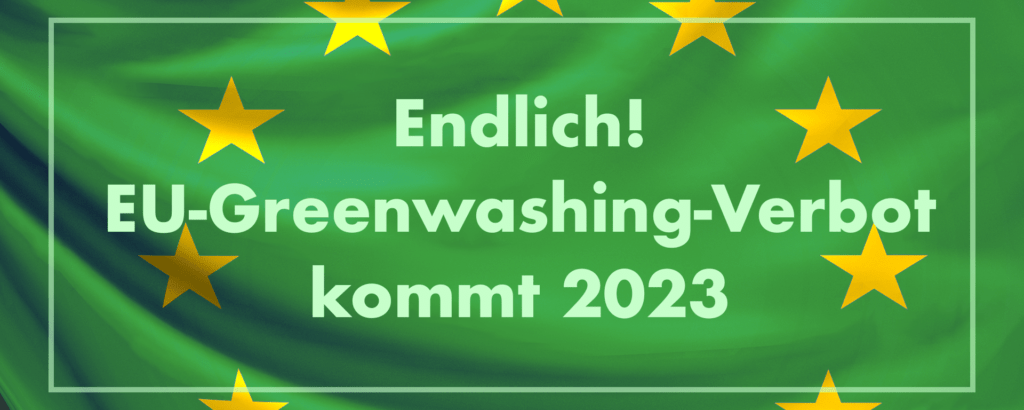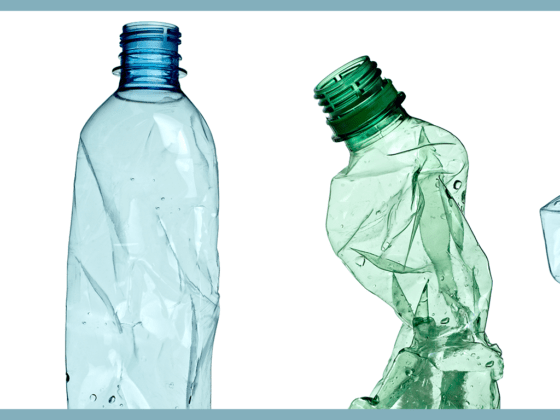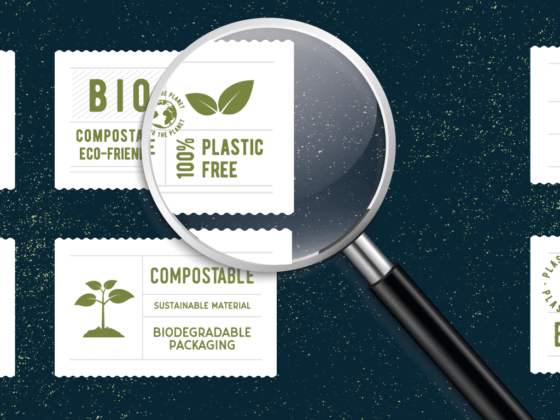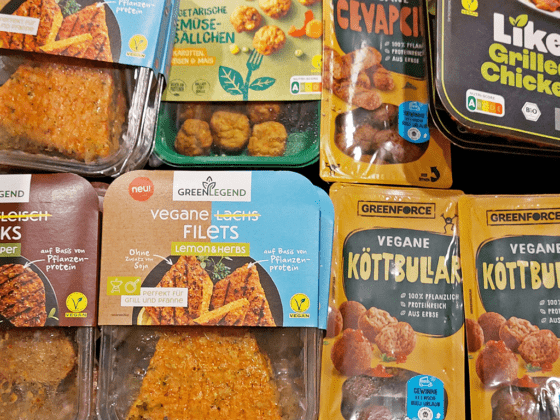Climate-friendly and sustainable – what exactly is that? In Germany, almost any product or service can be advertised with green slogans, regardless of whether it has an impact on the environment. This will soon come to an end: the EU is working on an anti-greenwashing law. It’s about time. Because the green promises of some companies are often not only baseless but also shameless.
By Carsten Gensing
Heating oil, cow’s milk, air travel, coffee capsules and chicken breast fillets sometimes have an unusual common denominator – many boast climate neutrality. At least, that’s what the advertising slogans of some providers of these products and services suggest. But common sense tells us that burning heating oil produces emissions. Flights, the production of disposable plastic capsules or even conventionally produced poultry meat also cause large quantities of greenhouse gases and are therefore certainly not suitable as advertising media for climate-friendly measures.
Environmental aid speaks of indulgence trade
It’s hard to imagine our supermarket and drugstore shelves without environmental advertising. It’s not just about climate neutrality. The recyclability of packaging, the recycled content of plastic products and packaging, and the alleged absence of microplastics in cosmetics or hygiene products are also massively advertised. The problem: by no means are there transparent proofs for the promises in all cases.
On the contrary. In May of this year, Deutsche Umwelthilfe (DUH) issued warnings to several companies, asking them to refrain from advertising with slogans that could not be substantiated. DUH managing director Jürgen Resch spoke of a “CO2 blow-off trade with which companies are washing their hands of green”. In the pillory of the environmental aid: prominent enterprises such as Beiersdorf, Shell, BP as well as the drugstore chains dm and Rossmann.
Compensation trees for wood industry
The companies defend themselves, pointing among other things to the investment in offset projects. One of the most prominent providers of such CO2-offset certificates is the service provider Climate Partner. The company arranges projects in which companies can invest according to their emissions.
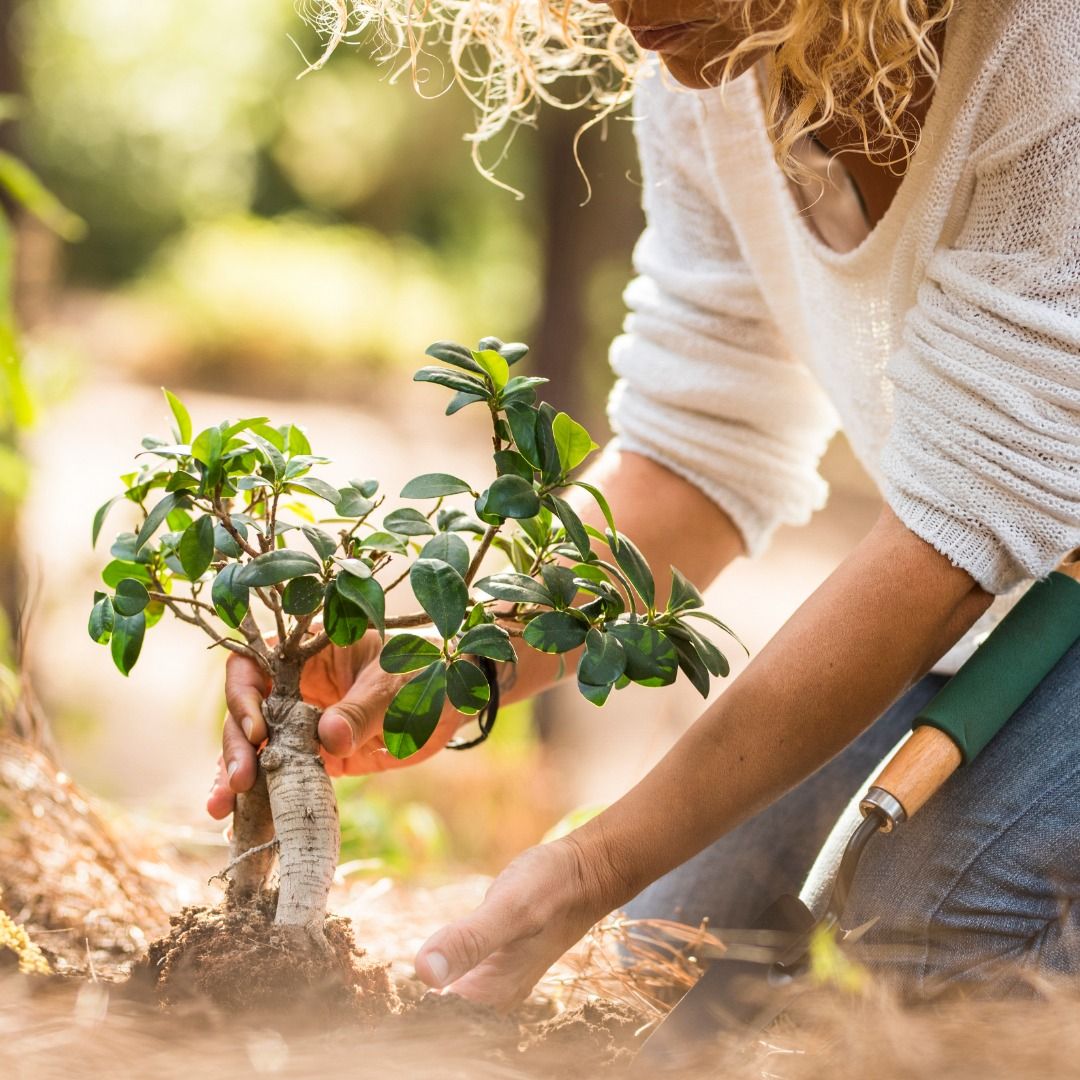
In return, the polluters receive green certificates. The calculation: Produce milk in Germany and plant trees in South America – then the CO2-footprint is neutralized and the climate certificate is issued, which gives the consumer a good feeling when purchasing.
Problem: the calculation doesn’t add up. Aldi Süd, for example, points to tree plantations in Uruguay as compensation for its cow’s milk, which is labeled as climate-neutral. A reportage team from the ZDF magazine “Frontal 21” traveled to the region and found a plantation where eucalyptus trees were actually planted. However, this is not a project to revive the virgin forest that has been cut down for cattle farming – but an industrial timber plantation. The logs cut there, according to the ZDF report, are exported to Asia or go to the paper industry.
Foodwatch gives Rewe negative award
There are no limits to the creativity of what can carry a climate-neutral label. Last year, for example, Rewe launched a chicken breast fillet on the market. This was not about climate-friendly animal husbandry or special feeding. The processed poultry came from conventional fattening farms with the second-worst “husbandry form 2” and was cut up in the slaughterhouse of the PHW Group (“Wiesenhof”). The conscience-soothing climate neutrality turned out to be purely a calculation based on Climate Partner certificates. The Foodwatch organization issued a warning to the retail chain and also revealed that the forest project supported in Peru, more than 10,000 kilometers away, existed only on paper, at least in the first few years. In February, the climate-neutral label disappeared again from the packaging. The only remnant: Rewe has since been awarded the Foodwatch Negative Prize “Golden Windbag” for the most audacious advertising lie of 2021.
Ocean plastic becomes “Ocean Impact Plastic”
But it’s not just large corporations and retail chains that are abusing people’s growing awareness of climate and animal protection. Start-ups are also sometimes not so careful when it comes to promoting good deeds. A few weeks ago, for example, the investigative research collective “Flip” revealed that in fact the bags produced by the successful backpack manufacturer “Got Bag” are not made from “100 percent recycled marine plastic”.
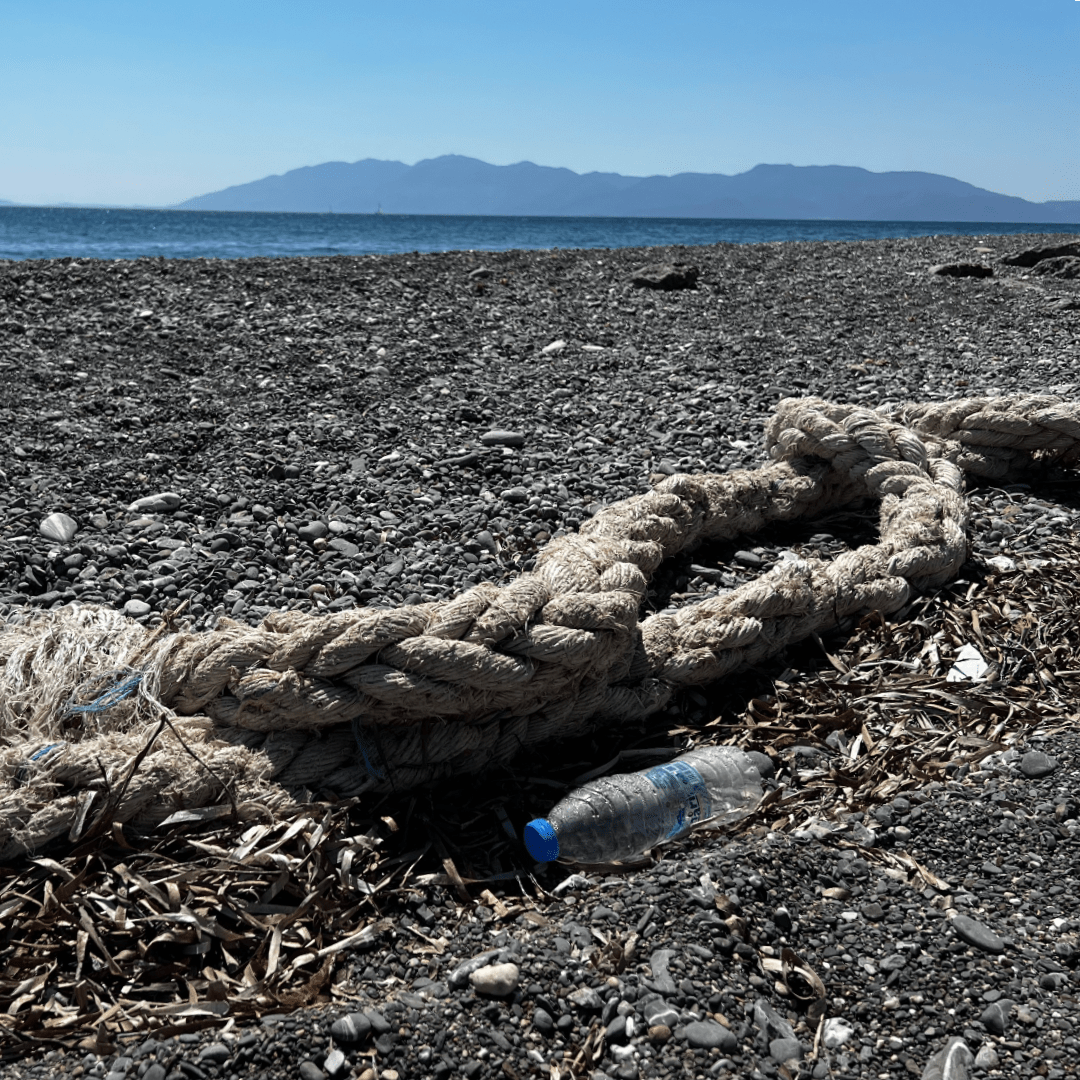
In addition, the ecological efficiency of the production is more than questionable. Comment by a textile researcher in the report published in ZEIT: “Why do I have to have a backpack in Germany made of Indonesian plastic that was recycled in China? We have enough plastic waste here ourselves.” The company now no longer refers to the raw materials used as “ocean plastic,” but writes of “ocean impact plastic” – whatever that is.
Flood of microplastic-free seals on cosmetics
From ocean plastics to microplastics: this topic is also omnipresent in the form of various seals and slogans, primarily on drugstore shelves. Because the idea of smearing microscopic plastic particles between one’s teeth or on one’s face during personal hygiene is extremely unpleasant, consumers like to use products that are labeled “microplastic-free”. However, as the knowledge magazine “Galileo” denounced in the spring of 2022, some seals are neither transparent nor independently licensed. Instead, the authors of the report recommend the independent flustix seal “Product content without microplastics”.

EU plans anti-greenwashing regulation
The draft for the EU’s anti-greenwashing regulation has now been available since the end of March. Implementation is planned for September 2023. The model is the EU Health Claims Regulation, which has been governing statements on nutrition and health since 2006. The new Green Claims Regulation is based on four fundamental measures with concrete implications regarding the proliferation of greenwashing.
Goodbye self-made seals
Designing a pretty seal and sticking it on your own private label – will no longer be possible in the future. The regulation prohibits the “use of unreliable and non-transparent sustainability seals. Instead, the seal jungle is to be thinned out. Certifications will then be subject to minimum ecological standards that are no longer defined by the companies themselves. Such seals already exist today. The EU Ecolabel is one of them. flustix is recognized as an independent seal too: If a product is to be declared “microplastic-free” it must undergo analysis at an accredited laboratory and the results must be verified by an independent certifier. Independent and accredited partners of flustix are DIN CERTCO / TÜV Rheinland and the Wessling Group.
Goodbye untested eco-promises
We know this from online stores: An item of clothing is additionally advertised as “sustainable.” What exactly is sustainable about it remains the online retailer’s secret. In the future, there will be “a ban on general environmental claims used in marketing to consumers where the excellent environmental performance of the product or entrepreneur cannot (…) be proven”.
Prohibition of unsupported declarations of intent
“Climate neutral by 2040” – that’s a quick claim and one that companies like to put in the shop window without showing a plan for how it will be implemented. The new regulation is designed to ensure that “a company can only make an environmental statement about future environmental performance if it contains clear commitments.” Anyone advertising climate neutrality by a certain date must also disclose the measures that will be taken to achieve the goal.
Goodbye to the wolf in sheep’s clothing
Advertising reduced emissions on a milk carton and explaining in the fine print that it was not the milk but the packaging that was at issue – two years ago, one such case ended up in court. The Arla Group had advertised its pasture milk with the words “-71% CO2” on the packaging, the organization Foodwatch sued them – and lost. The court considered the inconspicuous statement on the back to be sufficient. That changes with the new regulation, which includes a “ban on an environmental claim about the entire product if it actually refers only to a specific aspect of the product.” This would expose the wolf in sheep’s clothing.
The German Environmental Aid (DUH) does not want to wait that long; it is keeping an eye on any violations. Agnes Sauter, head of DUH’s Ecological Market Monitoring department, says: “Genuine climate protection is only possible if consumers receive honest information about the climate-harmfulness of individual products or services. As a consumer protection organization with the right to take legal action, we will consistently put a stop to greenwashing with alleged climate neutrality.”
 English
English Deutsch
Deutsch

